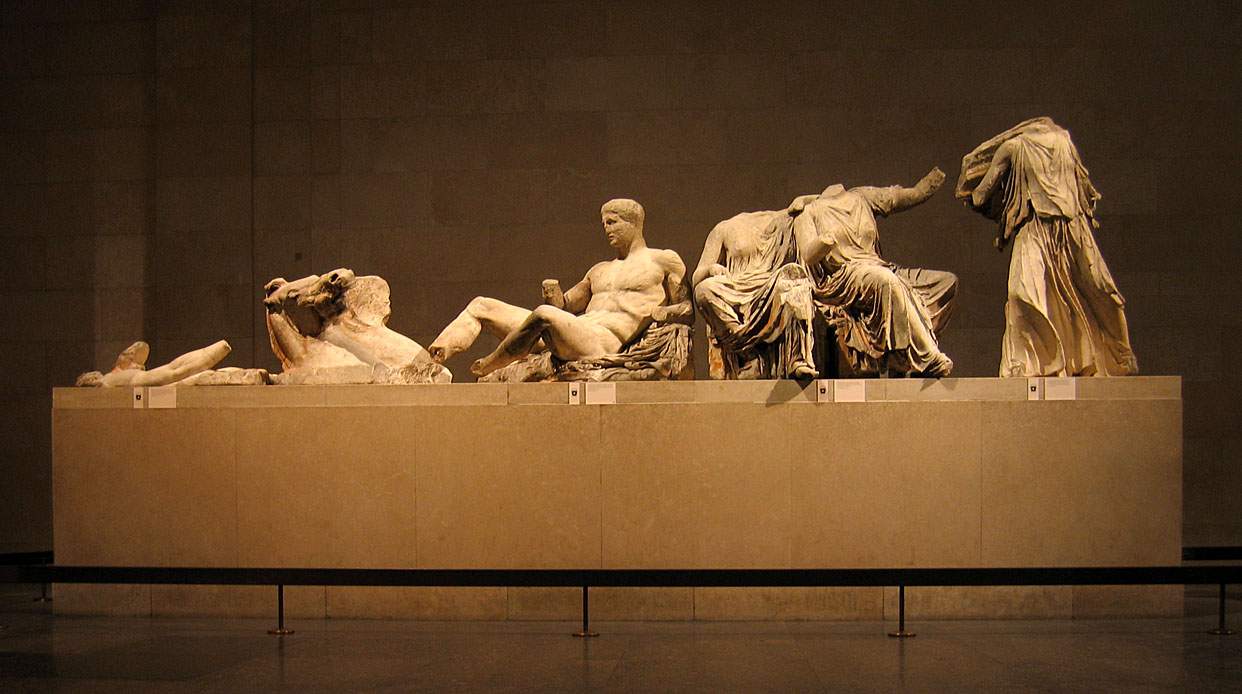Unesco is calling out the United Kingdom and asking the British government to reconsider its position on the return to Greece of the Parthenon Marbles, the sculptures also known as the “Elgin Marbles” after the English nobleman, Thomas Bruce, Earl of Elgin, who in 1811 removed the works from the Parthenon to take them to England where they are now on display, at the British Museum (they were purchased in 1816 by the British government). During the 22nd session of UNESCO’s Intergovernmental Commission for the Promotion of the Restitution of Cultural Property to Countries of Origin (ICPRCP), which was held between Sept. 27 and 29, UNESCO adopted a Recommendation and especially a Decision to foster dialogue between the two countries.
The case was brought to the attention of the ICPRCP in 1984 (it was raised by then Greek Minister of Culture Melina Mercouri), but no significant progress has been made since then. Now, after several recommendations, for the first time comes a Decision, number 22.COM 17, which reads as follows: “The Commission, 1) Recalling Article 4 paragraphs 1 and 2 of its Statute, 2) Noting that the request for the return of the Parthenon sculptures has been on its Agenda since 1984, 3) Recalling its sixteen recommendations on the matter, 4) Recalling also that the Parthenon is an emblematic monument of outstanding universal value inscribed on the World Heritage List, 5) Mindful of Greece’s legitimate and just request, 6) Acknowledging that Greece requested the United Kingdom in 2013 to mediate in accordance with UNESCO’s Procedural Rules on Mediation and Conciliation, 7) Recognizing that the case is intergovernmental in nature and that, therefore, the commitment to return the Parthenon sculptures falls on the government of the United Kingdom, 8) Expresses its deep concern that the matter is still on hold, 9) Further expresses its disappointment that its recommendations have not been observed by the UK, 10) Expresses its strong conviction that states involved in restitution cases brought to the attention of the ICPRCP should make use of UNESCO’s Mediation and Conciliation procedures with a view to their resolution, 11) Calls on the UK to reconsider its position and proceed in a good faith dialogue with Greece on the matter.”
According to Greece, the Decision has an important added value in theprocess of resolving the case: it is in fact a more challenging document than a Recommendation, and more importantly, it contains a precise exhortation, recognizing moreover that the case is an intergovernmental matter (as opposed to the UK’s claim that it is a matter for the British Museum alone). In addition to this, the text of the Recommendation also approved on Sept. 29, while noting that there is ongoing cooperation between Greece and the UK, expresses another concern, namely the fact that at the British Museum the Duveen Gallery, namely the place where the Parthenon marbles are displayed, is currently closed for work.
“Greece’s request for the permanent return of the Parthenon sculptures to Athens,” Greek Minister of Culture Lina Mendoni stressed after the close of the proceedings, “has been on the agenda of the UNESCO Intergovernmental Commission for the Restitution of Cultural Property to Countries of Origin (ICPRCP) since 1984, when it was first introduced. once by Melina Mercouri, until now. At the 22nd session, Greece succeeded in reaching, for the first time, an Intergovernmental Committee Decision concerning specifically the issue of the return of the Parthenon sculptures. It urges the United Kingdom to reconsider its position and negotiate with Greece, recognizing that the issue is intergovernmental (contrary to the British side’s claim that the case concerns the British Museum) and in particular that Greece is rightly and legally claiming the return of the sculptures to its homeland. Both texts, of the Recommendation and the Decision, represent a very important development in our country’s totally legal claim. I would like to thank from the bottom of my heart the members of the Greek delegation, as well as our Permanent Representation to UNESCO, who with special dedication to the goal of the final return of the sculptures worked systematically and achieved this extremely positive result.”
The United Kingdom, the last few times the case has been addressed, has always flatly refused the return (last March even Prime Minister Boris Johnson spoke on the matter). The British Museum’s line for now, however, has remained unchanged: according to the institution, the sculptures were acquired according to the laws of the time and there is therefore no reason to return them to Greece.
Pictured: the Parthenon pediment sculptures, east side, preserved at the British Museum. Ph. Credit Andrew Dunn
 |
| Parthenon marbles, Unesco intervenes: UK reconsiders its position |
Warning: the translation into English of the original Italian article was created using automatic tools. We undertake to review all articles, but we do not guarantee the total absence of inaccuracies in the translation due to the program. You can find the original by clicking on the ITA button. If you find any mistake,please contact us.